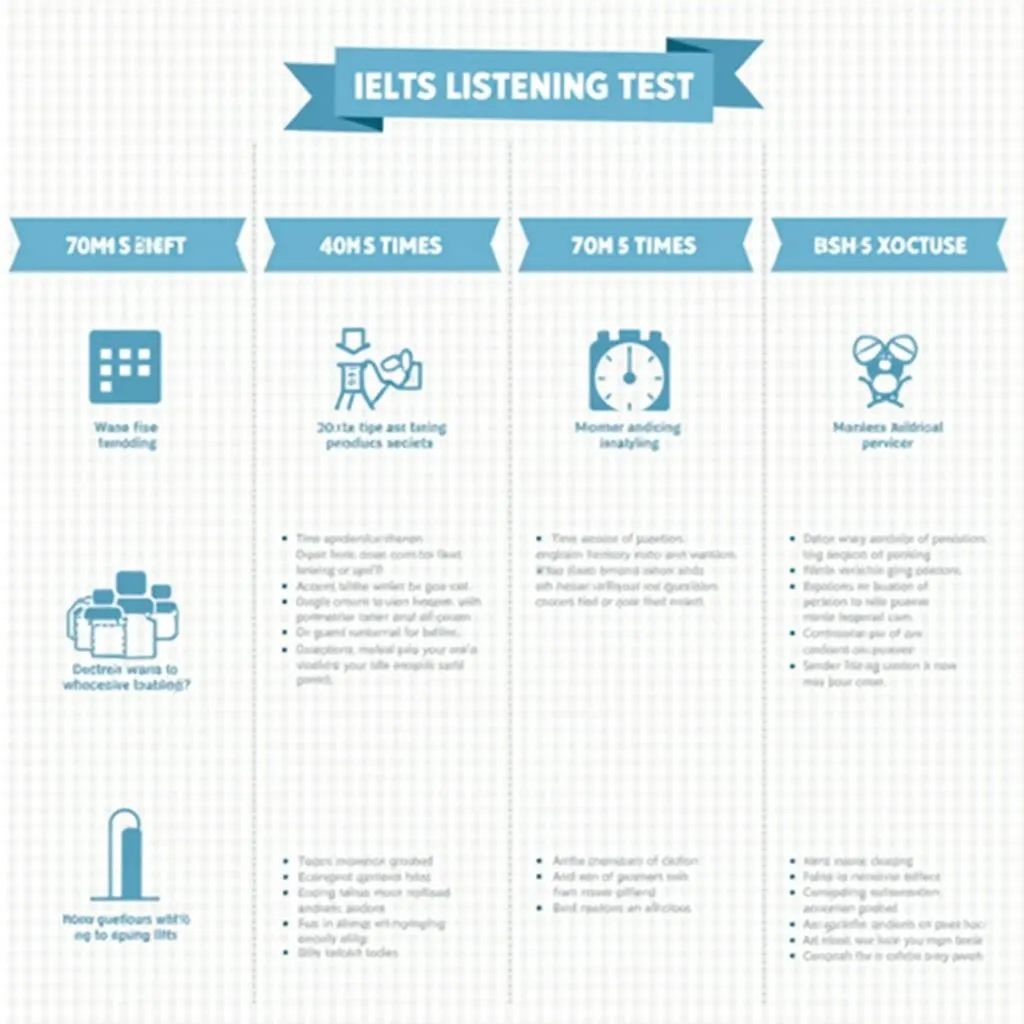Understanding the IELTS Listening Test
The IELTS Listening test is a crucial component of the overall IELTS exam, designed to assess your ability to understand spoken English in various contexts. Many test-takers find this section challenging due to its unique format and potential pitfalls. In this comprehensive guide, we’ll explore common mistakes and provide expert strategies to help you excel in your IELTS Listening test.
The Structure of the IELTS Listening Test
Before diving into the pitfalls, it’s essential to understand the test structure:
- Four sections, each with 10 questions
- Approximately 30 minutes of listening time
- An additional 10 minutes to transfer answers to the answer sheet
- A variety of question types, including multiple choice, matching, and form completion

Common IELTS Listening Pitfalls and How to Avoid Them
1. Losing Focus During the Recording
Many test-takers struggle to maintain concentration throughout the entire recording. This can lead to missed information and incorrect answers.
How to avoid it:
- Practice active listening regularly
- Improve your stamina by listening to English audio for extended periods
- Stay hydrated and well-rested before the test
2. Misinterpreting Instructions
Failing to follow instructions accurately can result in lost points, even if you understand the audio content.
How to avoid it:
- Read all instructions carefully before the audio begins
- Underline key words in the instructions
- Practice with official IELTS sample tests to familiarize yourself with common instruction patterns
3. Spelling Errors
In the IELTS Listening test, spelling mistakes are penalized. Even minor errors can cost you valuable points.
How to avoid it:
- Review common spelling rules, especially for homophones
- Practice transcribing spoken words regularly
- Double-check your spelling during the transfer time
4. Getting Stuck on Difficult Questions
Dwelling on challenging questions can cause you to miss subsequent information and questions.
How to avoid it:
- If you’re unsure about an answer, make an educated guess and move on
- Use the preview time to identify potentially difficult questions
- Practice time management strategies during mock tests
5. Failing to Predict Content
Not anticipating the type of information you need to listen for can lead to missed answers.
How to avoid it:
- Use the 30-second preview time to read questions and predict possible answers
- Pay attention to question types (e.g., numbers, names, dates) to focus your listening
- Practice identifying key information in various types of audio content
6. Missing Synonyms and Paraphrases
The audio often uses different words or phrases than those in the questions, tripping up unprepared test-takers.
How to avoid it:
- Expand your vocabulary, focusing on synonyms and paraphrases
- Practice identifying different ways to express the same idea
- Listen to a variety of English accents and speaking styles
7. Overlooking Signpost Language
Missing transitional phrases and signpost language can cause you to lose track of the speaker’s main points.
How to avoid it:
- Familiarize yourself with common signpost phrases (e.g., “firstly,” “in contrast,” “to summarize”)
- Practice identifying the overall structure of spoken passages
- Listen for changes in tone or emphasis that may indicate important information
8. Panicking When You Miss an Answer
Becoming anxious after missing an answer can negatively impact your performance on subsequent questions.
How to avoid it:
- Develop a positive mindset through regular practice and preparation
- Remember that it’s normal to miss some answers; focus on the next question
- Practice relaxation techniques to manage stress during the test
Effective Strategies for IELTS Listening Success
To overcome these pitfalls and improve your IELTS Listening score, consider implementing the following strategies:
-
Regular Practice: Engage with English audio content daily, including podcasts, news broadcasts, and academic lectures.
-
Diverse Listening Materials: Expose yourself to various accents, speaking speeds, and topics to build versatility.
-
Mock Tests: Take full-length practice tests under exam conditions to improve your timing and stamina.
-
Active Listening Exercises: Develop your ability to identify main ideas, supporting details, and implied meanings.
-
Vocabulary Building: Focus on expanding your academic and topic-specific vocabulary to aid comprehension.
-
Note-Taking Skills: Practice efficient note-taking techniques to capture key information quickly.
-
Answer Sheet Familiarity: Become comfortable with the answer sheet format to minimize transfer errors.
Next Steps for IELTS Listening Preparation
Now that you’re aware of common pitfalls and effective strategies, it’s time to put this knowledge into practice:
- Create a structured study plan focusing on your weak areas
- Set realistic goals for improvement and track your progress
- Seek feedback from experienced IELTS tutors or study partners
- Utilize official IELTS preparation materials for authentic practice
- Join online IELTS study groups to share experiences and tips with fellow test-takers
By consistently applying these strategies and avoiding common pitfalls, you’ll be well-prepared to tackle the IELTS Listening test with confidence. Remember, success in IELTS Listening is not just about understanding English, but also about mastering the specific skills required for the test format. Stay focused, practice regularly, and approach the test with a positive mindset for the best results.